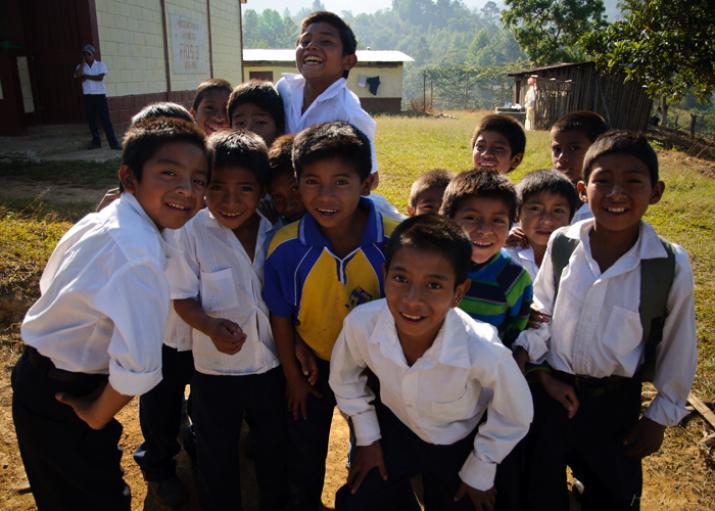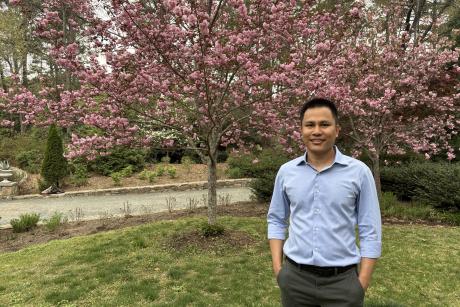By Wendy Zhang
MS III,
Duke University School of Medicine
It’s amazing how quickly time passes. Early in March 2010, Honduras was still a dream away, and now in April 2011, I can say that it’s the 4th most visited country of my life, that I saw and treated a fraction of the ~1000 people our group has seen and treated in the past 2 years (some of them double, triple, quadruple, or more-counted…), that I shed tears after glimpsing some of the hardships the people we treat face every day, that I met amazing people who have helped me grow as a person and as someone entering the medical professions (both within our medical group and those within the communities we visited), and that I’ve read two books that have opened my eyes to some of the world’s less-spoken-about stories of suffering and bravery (“Enrique’s Journey” and “Half the Sky”).
Having had the opportunity to see Honduras twice, I’m also amazed at how many things had changed in a year and also at how many things stayed the same. A year ago in Las Mercedes, there was no electricity for miles around, no “western” flushing toilets, no showerhead that was more than waist-high, (and no ginormous spiders…). The clinic didn’t have painted walls or tiled floors or a working kitchen. These were luxuries, though still elusive to the people in those communities, that greeted us this year when we arrived. It’s amazing how these comforts that we so take for granted here can change your experiences in Las Mercedes; for instance, you really come to appreciate those flushing bathrooms situated in tiled lit rooms at 2am in the morning when 5-6 of you are sick with a GI bug.
But the things that haven’t changed are also striking. The women still get up at 3am to start breakfast, the men (and children) at 4am before heading to “el campo” or the fields to work. The majority of children still only get 6 years of education before joining the work force at age 12-14; a handful get an additional 2 years by walking 2-4 hours on the mountain road to the regional school that offers those extra years of education; and very rarely does a young student get the opportunity or monetary fund to attend a technical university (to become a teacher, nurse, etc.) in La Esperanza, the closest town that also houses the nearest hospital.
Almost everyone we see during our 5 days in Las Mercedes still has chronic back/shoulder/neck/knee/leg pain, headaches and dizziness from dehydration, chronic cough from working with pesticides or dust in the air or smoke in their houses from lack of a chimney. These hardships that few of us can imagine enduring for as long as they have and that initially gave us pause when we first heard them from the people we were treating start becoming matter-of-fact with each family you meet. For them, it’s simply how life is, and for you, it becomes “normal” to treat people whose symptoms result mainly from environmental factors. The really difficult moments come when you meet families who, on top of the normal trials and hardships of daily living, are also met with the tragedy of illness.
Last year, there was a woman who had never owned shoes in her 60-some years and a questionable case of child abuse in a little girl who came in with a subconjunctival hemorrhage. This year, there was a 58 year old man with asthma and bilateral wheezing that even a medical student couldn’t miss who worked in the fields and who couldn’t afford rescue inhalers; on top of this, his wife was battling symptoms of senility. There was also the mother with a baby who likely had trisomy 13 or some other syndromic disorder who came seeking help. Then there was the man who admitted to alcoholism who was sobering up from having drunk 2L of the local moonshine 2 nights ago, who had 4 children at home – the youngest only a few years old. These stories make it hard going back to Honduras.
Not because I’m confronted by sad experiences, but because of the helplessness I feel sometimes. But it’s because of these lessons and experiences and interactions that make me a better person and that will make me a better healthcare provider. I’ve learned there’s a big change in perspective that comes with global outreach (for if there’s anything that will cure a student’s obsession and compulsion over past letter grades and exam scores, it’s meeting people with real problems and hardships AND seeing them deal with it). I said last year in my post-trip reflections that I hope I impacted the people of Intibuca with at least 20% of what I personally gained from this experience. I feel the same this year. I’m incredibly appreciative of the opportunity to return to Honduras and interact with the people in the community in clinic and out of clinic.
I love having seen the children there last year and seeing them again this year taller and more mature (but still youthful and energetic as they hiked with us on our community tour, and as they recounted their soccer victories over children in neighboring communities, and as they repeated English words and phrases, and corrected our Spanish). I love learning more about some of the people in the community this year that I didn’t get to do last year: like Ernesto from Las Mercedes who has a great appreciation for all types of music around the world – his radio being his one connection to the outside world – and like Delsi, the precocious and incredibly smart girl from El Rosario who wishes to become a doctor and who taught me her secret handshake. I love going back to their church and seeing their services and hearing their voices in song.
I love watching Gloria, our Heifer International contact, interact and counsel people in the community. I love that I got to be a part of an interdisciplinary group working together to effect a little change in these people’s lives. And I love being part of an outreach group that through building the health clinic has changed and is changing the communities’ way of life for the better. Read more about the Honduras trip this spring in "Duke Students Experience Global Health in Honduras"



